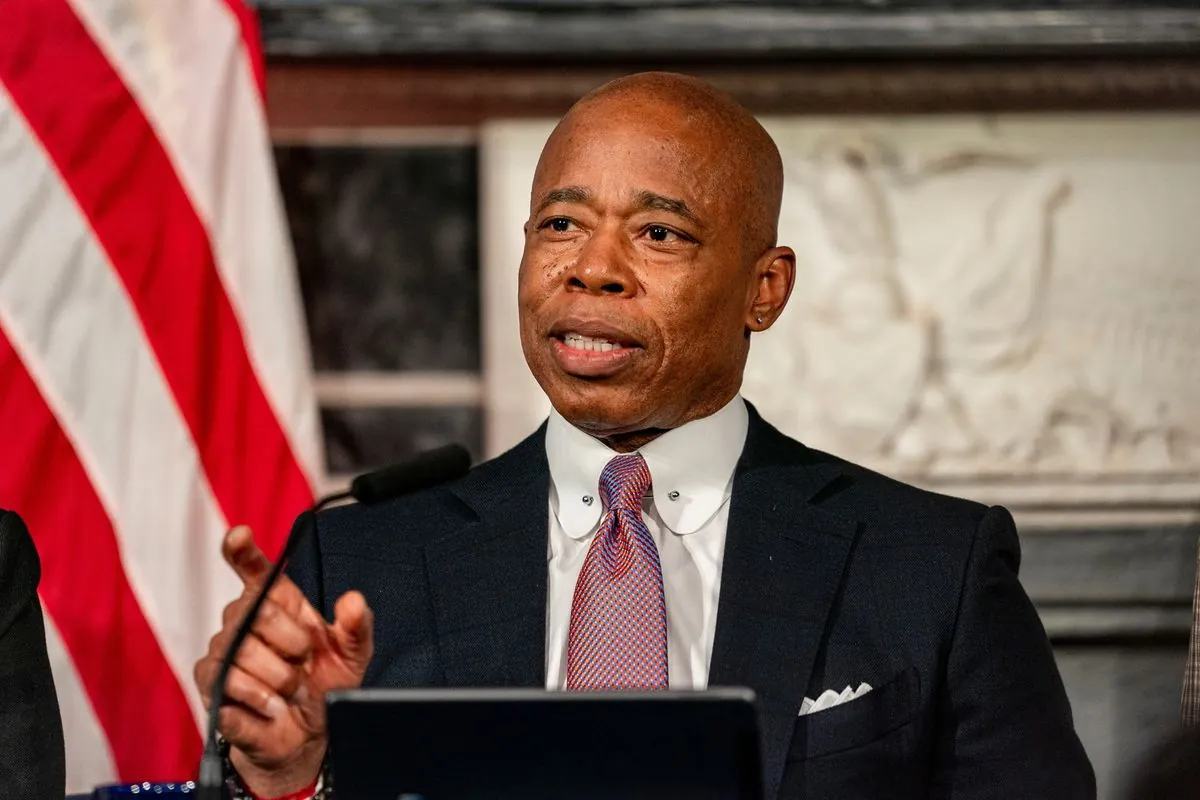NYC Mayor Adams Faces Corruption Charges in Turkish Influence Scandal
Eric Adams, New York City's mayor, has been indicted on corruption charges involving Turkish officials. Allegations include receiving travel perks and illegal campaign contributions in exchange for political favors.

Eric Adams, the 110th mayor of New York City, finds himself at the center of a corruption scandal that has sent shockwaves through the political landscape. The federal indictment alleges a complex web of illegal activities involving Turkish officials and businesspeople, raising questions about the integrity of local governance and foreign influence in American politics.
The charges against Adams include accepting improper benefits such as complimentary airline tickets, hotel accommodations, and meals from Turkish sources. In return, prosecutors claim Adams used his position to expedite approvals for a Turkish consulate building, bypassing safety concerns raised by the New York City Fire Department (FDNY).
One of the most serious allegations involves the manipulation of New York City's campaign finance system. Adams is accused of conspiring to receive illegal campaign contributions, including those from foreign nationals and governments, potentially influencing the outcome of the 2021 mayoral election and preparations for the upcoming 2024 race.

The case draws parallels to other political corruption scandals, such as the "Bridgegate" controversy that tarnished former New Jersey Governor Chris Christie's administration. However, the direct involvement of foreign entities in this instance adds a new layer of complexity and concern.
Critics argue that Adams' case exemplifies a broader issue in politics: the tendency to elevate off-year election winners to national prominence prematurely. This phenomenon often leads to unrealistic expectations and increased scrutiny, as seen with Adams' rapid rise to being considered a potential future presidential candidate.
Historically, the exchange of favors for luxury and influence has been a common practice in politics. From 18th-century Venice to modern-day New York, the interplay between political power and personal benefit has remained a constant. However, the Adams case highlights the evolving standards of ethical conduct expected from public officials in the 21st century.
"I always knew that if I stood my ground for all of you, that I would be a target."
As the legal process unfolds, the implications of this case extend beyond New York City. It raises important questions about the effectiveness of campaign finance laws, the influence of foreign entities on local politics, and the need for greater transparency in government operations.
The indictment of Eric Adams serves as a reminder of the ongoing challenges in maintaining the integrity of democratic institutions. As the public digests these allegations, the focus now turns to potential reforms and the future of political leadership in one of America's most prominent cities.


































